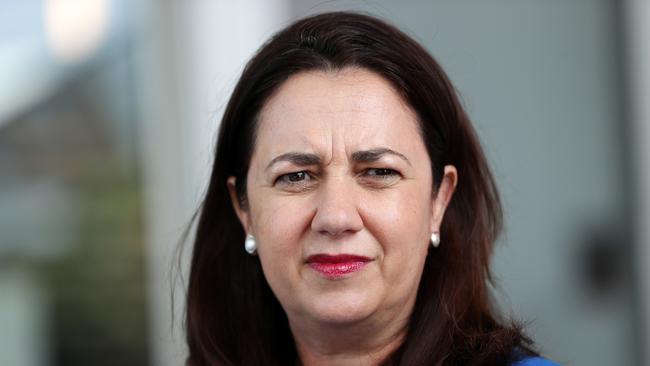Phone bans won’t stop bullies. It’s up to parents
BULLYING is an incredibly complex problem in schools. But calls from politicians to ban phones and social media only addresses the tools used, not the underlying cause, writes Paul Williams.
Rendezview
Don't miss out on the headlines from Rendezview. Followed categories will be added to My News.
COMMENCING the school year without public discussions of bullying is like beginning the Spring Racing Carnival without mentioning the horses.
School and bullying and the narrow cultural norms kids, parents and teachers mutually reinforce have always gone together. Note that technology isn’t part of that mix.
The most elaborate technology during my school years was a calculator yet I was a daily target of thugs (as were dozens like me). It seems being quiet and studious was an open invitation to have the bookishness beaten out of you.
Indeed, the cutting-edge technology of 19th century Britain was a quill pen but that didn’t prevent the English public school system becoming notorious for a Victorian culture of victimisation bordering on the criminal.
No one doubts that social media — sometimes accessed on smart phones, sometimes not — has facilitated bullying among kids. It’s equally true that bullying now continues in an odious online world long after 3pm.

But social media and the devices that carry them, are merely a bully’s tool. Banning smart phones from all schools fails to address the underlying problem. Moreover, smart phones are increasingly necessary information retrieval tools that teach kids autonomous learning skills.
In the not-too-distant future, even the smart phone will disappear — gone the way of the dowdy desktop computer and, eventually, even the laptop and tablet. In its place, when the World Wide Web is embedded in the “internet of things”, voice-operated search engines will be in our clothes, and tiny screens in the corner of our glasses, or even in the lenses of our eyes.
In an information-rich world of the 2030s, what use is “banning” information retrieval devices necessary for independent learning? It’s a question highlighting not only the short-sightedness of a phone ban but the hypocrisy of the idea.
In arguing for a ban on phones in school, the LNP has adopted a government regulatory approach to solve a social problem. Don’t teachers have enough to do without checking school kids’ bags for phones?
Moreover, didn’t the LNP during the last election campaign pledge to repeal the Labor Government’s tougher regulations over the sale and consumption of liquor — designed to curb alcohol-fuelled violence — because, it said, they created a “nanny state”? Didn’t the LNP insist that government regulation was heavy-handed and that individuals had to learn “individual responsibility”?
Unlike the supply and consumption if liquor (which exists physically within the tangible jurisdiction of Queensland), it’s impossible to regulate — by rules alone — how young people use intangible social media in a virtual world unconstrained by physical borders.
Unless we want to introduce a China-like firewall or, like North Korea, ban the web altogether.

And that’s no apology for a social media I despise for its fake news that lies to vulnerable voters, and for its undermining of mainstream news models that threatens professional journalism and steals countless jobs while making a handful of owners billions in profits. As a victim of filthy Twitter trolls myself, my online presence is now limited to emails. (I don’t even read online comments under my columns; the vile, personal abuse makes any debate impossible).
But social media is here to stay and, rather than ban school kids from it, it’s far more desirable to teach children how to use it to the benefit of all, including how to build a positive personal profile that future employers would love to read.
Sadly, psychologists say the majority of families are now technically “dysfunctional”. Moreover, numerous studies confirm that child bullies (who often become adult bullies) are created not by technology but by poor parenting. Whether the child learns to bully from a bullying parent (over-parenting) or bullies from a lack of parental attention (under-parenting), the home is where it all begins.
As such, we’d expect the LNP — a party proudly purporting to be pro-family — to insist parents take the lead and teach their children how to live, work and play respectfully with others online. Can we eliminate bullies altogether? Of course not. But federal and state governments can fund programs to improve parenting and curb kids’ anti-social behaviour.
In that sense, Premier Palaszczuk recently scored a win in getting Prime Minister Turnbull to add cyber-bullying to the forthcoming COAG agenda. Happily, Queensland could now lead the nation in how to improve functionality in families.
Bullying is an incredibly complex social problem in schools and in workplaces. It’s incumbent upon all politicians to avoid simple, populist reactions and work with both government and science to offer real solutions.
Dr Paul Williams is senior lecturer at Griffith University’s School of Humanities


